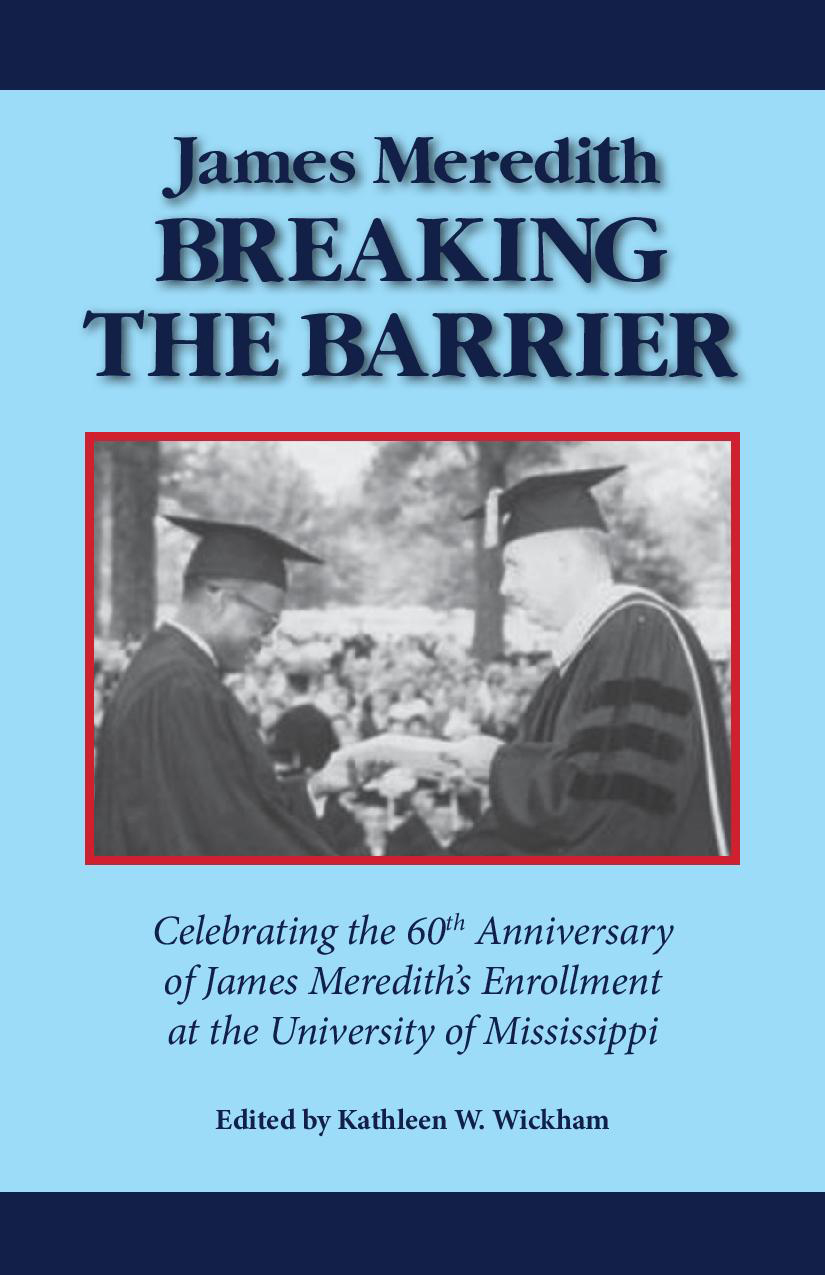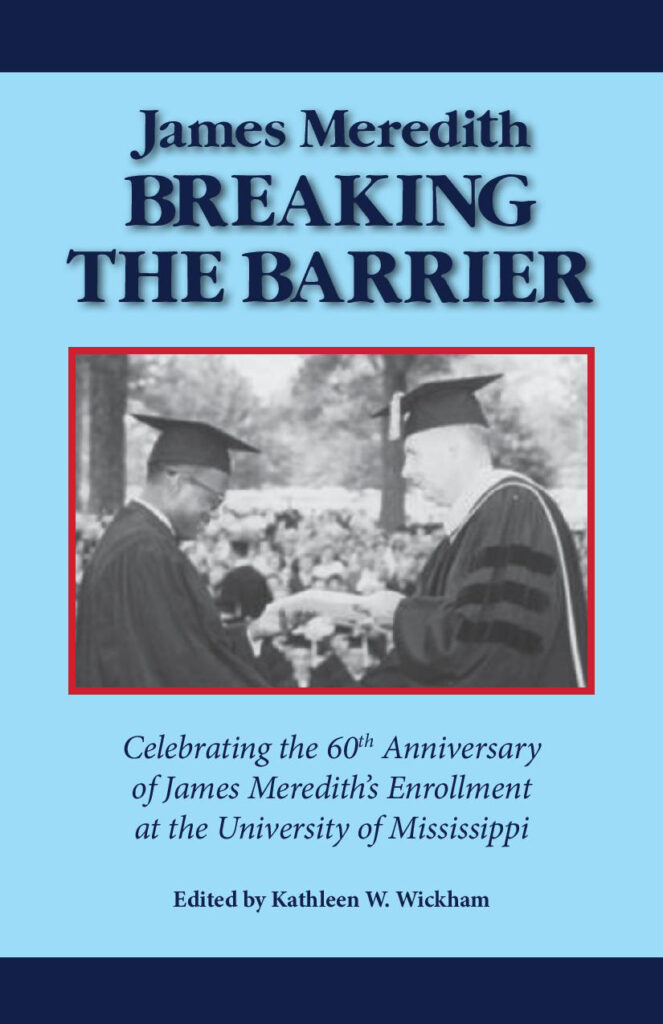
'James Meredith: Breaking the Barrier' includes essays from 10 university students, journalists, historians and eyewitnesses to tell the story of Meredith's path to becoming the first African American to graduate from the University of Mississippi.
Diverse essay collection commemorates Meredith’s 1962 enrollment
The University of Mississippi, along with Yoknapatawpha Press, has released an anthology of essays chronicling James Meredith‘s 1962 enrollment. “James Meredith: Breaking the Barrier” serves as the commemorative text for the 60th anniversary of the university’s integration.
In the collection, 10 university students, journalists, historians, and eyewitnesses tell the story of Meredith’s turbulent but successful path to becoming the first African American to graduate from the state’s flagship university. The book stemmed from the work of a planning committee and was proposed by Kathleen Wickham, UM professor of journalism, who served as its editor.
“The book provides a diverse and distinct group of voices and a unique perspective on the events surrounding James Meredith’s enrollment at the University of Mississippi,” Wickham said. “We wanted to tell a narrative that told the whole story, but using different voices.”
Wickham contributed an essay on Paul Guihard, the French reporter who was shot and killed during the integration riot. Previously, Wickham was instrumental in leading efforts to place a historical plaque and memorial bench in honor of Guihard on campus.
She is the author of “We Believed We Were Immortal: Twelve Reporters Who Covered the 1962 Integration Crisis at Ole Miss” (Yoknapatawpha Press, 2017).
Jesse J. Holland (BA 94) contributed a foreword for the collection. Holland, who has authored four books, served as a longtime reporter for the Associated Press and was one of the first African American journalists assigned to cover the Supreme Court full time. He was also the second Black editor of The Daily Mississippian, the university’s student newspaper.
“In Mississippi, we have not always taken the best care of our history, and we have not always allowed the true story to be told,” Holland said. “With this anthology, we’re allowing a history that has been told in general terms to now be told in specifics, by people who were there and people whose lives were affected by James Meredith.
“The university we know today would not exist without the sacrifices he made and without what he did to make the university a place all people can attend.”
Founded in 1975, Yoknapatawpha Press is a Southern regional press owned and operated by publisher Lawrence Wells.
“These essays trace the story of Meredith coming to the campus, including a flashback to his legal struggle to be enrolled, and moving forward to eyewitness accounts of the protests, the shootings and the destruction of the campus,” Wells said. “We are really excited to have Meredith himself represented as one of the contributors to this book.”
The book begins and ends with essays by Meredith. Additional authors include:
- Dorothy Gilliam, the first female African American reporter hired by The Washington Post
- William Doyle, author of “An American Insurrection”
- Sidna Brower Mitchell (BA 63), the 1962-63 editor of The Daily Mississippian, who was nominated for a Pulitzer Prize for her editorial urging calm during the integration
- Curtis Wilkie (BA 63), a journalism senior and spectator during the riot who later became a UM journalism professor after a distinguished career at the Boston Globe
- Henry Gallagher, a U.S. Army MP lieutenant who commanded the military security detail that guarded Meredith after his enrollment
- Marquita Smith, UM journalism professor
- William Winter, former Mississippi governor
The 160-page book features more than 50 images.
It is available for $15 at the campus bookstore and will be sold at three campus events: a screening of the documentary “Mississippi Messiah” at Fulton Chapel, 6 pm Tuesday, September 20; “The Mission Continues: Building Upon the Legacy,” the university’s signature event honoring James Meredith, 6:30 pm September 28 at the Gertrude C. Ford Center for the Performing Arts; and “Meredith & the Media: The Legacy of a Riot,” a panel discussion at the Overby Center for Southern Journalism and Politics, 5:30 pm September 27.
“Meredith & the Media: The Legacy of a Riot” will feature Wickham, Wilkie, and Mitchell as panelists. Holland will moderate the discussion, which will focus on the media’s coverage of the integration.
“The panel will be discussing what we can learn today from what happened back then,” Holland said. “We’ll be looking at some of the coverage and talking about how it affected what was going on – not only in Mississippi, but around the country.
“Journalism is always the first draft of history. So as journalists, we have a particular responsibility to get it right.”
By Emily Howorth




